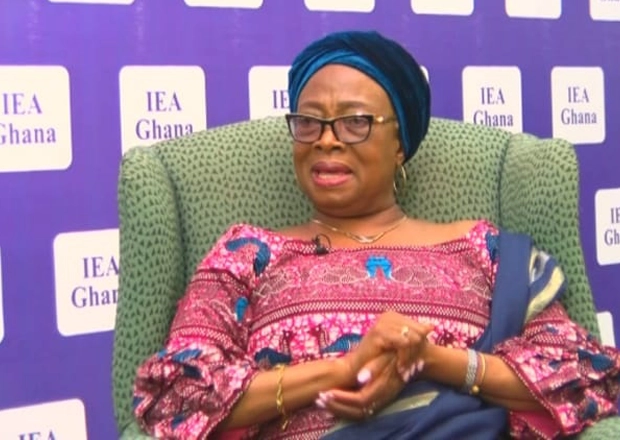Former Chief Justice and Distinguished Fellow of the Institute of Economic Affairs (IEA), Sophia Akuffo, has demanded clarity from the government on its decision to extend the petroleum licences of Tullow Oil and its partners, questioning the logic behind renewing a contract that still has 11 years left before expiry.
Speaking at an IEA dialogue themed “Reviewing the Petroleum Agreement for the Good of Ghana,” Madam Akuffo called on authorities to publicly justify the decision and explain why a company entangled in costly legal battles with the state deserves an extension.
“We, the people of Ghana, deserve to know why a contract with 11 years remaining should be extended further. Moreover, the business partner in question hasn’t exactly had a stellar track record. We’ve been in arbitration with them over tax payments, and despite the Ghana Revenue Authority’s assessment, they have challenged it, citing various reasons. As a result, Ghana lost millions of dollars in revenue. To make matters worse, we’re now facing damages of over a million pounds per day, plus legal costs amounting to hundreds of thousands of dollars. And then in the middle of all that, you extend an agreement,” she said.
Her comments referenced Ghana’s legal defeat at the International Chamber of Commerce (ICC) in London, where Tullow Oil successfully challenged a USD 320 million tax assessment issued by the Ghana Revenue Authority. The tribunal ruled in favour of the oil firm, absolving it of liability and ordering Ghana to bear hefty arbitration costs.
According to the ruling, Ghana is liable for multiple fees: GBP 1,946,589.44, USD 294,228.72, and USD 574,000.00, in addition to interest accumulating at five percent per annum until the total amount is paid.
The former Chief Justice described the government’s decision as baffling, especially in the context of strained public finances and questions around resource governance.
Barrister and Solicitor Victor Anku-Tsede, also speaking at the event, raised concerns over the Memorandum of Understanding (MoU) recently signed between the Government of Ghana and Tullow. He argued that, while the MoU is non-binding, it could commit Ghana to outdated contractual terms that may no longer reflect the country’s development priorities.
He cited constitutional provisions and legal precedents that demand legislative oversight for agreements of such magnitude.
“The Supreme Court’s jurisprudence confirms that substance must prevail over form in determining whether agreements qualify for ratification,” he said.
He also stressed that reviewing and modernising petroleum contracts is a globally accepted practice, not a radical move.
“Reforming these agreements is not a radical proposition. It is a practical, globally consistent approach to maximising public benefit. Other nations like Senegal, Namibia, Tanzania, Angola, and Mexico, have all undertaken petroleum contract reform in response to evolving national goals. These examples offer Ghana useful lessons in balancing investor certainty with fiscal justice and democratic accountability,” he added.
Meanwhile, Deputy Ranking Member of Parliament’s Energy Committee and MP for Afigya Kwabre North, Collins Adomako-Mensah, has assured Ghanaians that any new agreement will be brought before Parliament for scrutiny.
He clarified that current talks remain preliminary and that the MoU alone does not constitute law.
“The MoU will not become binding without parliamentary approval,” he said, seeking to allay fears that the government was bypassing legislative oversight.


